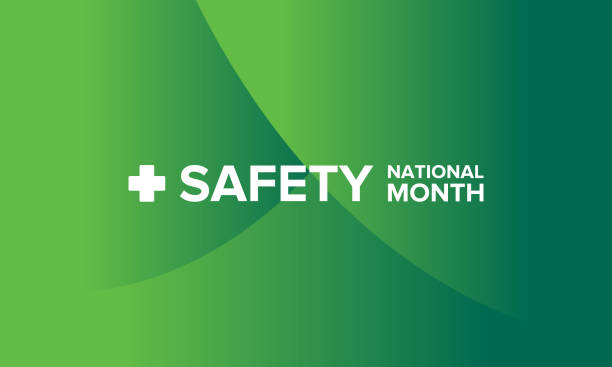June is National Safety Month in the United States, and all across the country, we celebrate by reminding each other of the importance of staying safe! We also participate in activities that further promote safety awareness and education.
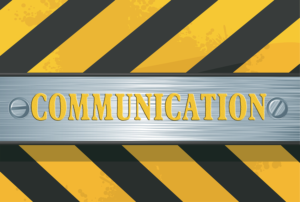
National Safety Month is a great time to practice total communication, which means paying attention to one another and acknowledging one another, not only during National Safety Month but all year long. If you’re like me, you have probably heard the term “total communication” before, but don’t know exactly what it means. Total communication is about paying attention to what people are saying and acknowledging them in order to build trust. It’s about listening carefully and being open-minded enough to accept other people’s ideas or points of view. For example, if someone tells me that they are going to be late for dinner because they got stuck in traffic on the way home from work, I might respond by saying something like: “That’s okay! There is plenty of food left over from dinner last night.” This response shows my friend that I understand what she said and that I care about her feelings. This kind of response will help her feel comfortable sharing more personal information with me later on down the road—which is important because we all need people who listen carefully and care about our feelings.
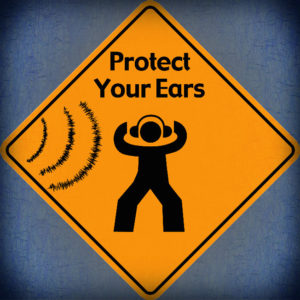
We’re celebrating National Safety Month by raising awareness about the importance of protecting your hearing. You may not realize it, but loud noises can cause permanent damage to your ears. It’s not just the volume that matters; it’s also the duration of exposure. The longer you hear a noise at high decibels, the more likely you are to experience hearing loss. But there’s good news: You can prevent this from happening! To start with, be sure to wear earplugs when you’re exposed to loud noises—especially if they’re regular occurrences. For instance, if you work in construction or have a habit of attending concerts or sporting events, consider investing in a pair of earplugs that can help protect your ears from damage over time.
Protect yourself from injury by wearing the right safety gear. Whether you’re working on your yard, cutting wood, or just doing some general yard work, always wear eye protection. Not only will it protect your eyes from debris and protect them from splinters and scratches, but it’ll also help prevent infections that can cause blindness. And while we’re on the topic of safety gear: make sure to wear gloves if you’re doing any sort of yard work that may involve chemicals or dangerous materials. Gloves may seem like a nuisance, but they protect your hands and are far better than dealing with splinters or scratches later. There is nothing quite like being able to enjoy the experience of life, but when you are injured and have to recover from an accident, that experience can be painful. It’s important to be aware that wearing protective gear will help prevent many injuries and may even save your life.
Do you know what the leading cause of injury is? You guessed it: falls. In fact, according to the Centers for Disease Control and Prevention, falls account for more than one-third of all injuries at home and on the job. And that’s not even counting the people who fall in other places—like at the gym or while running! The good news is that there are a lot of simple things you can do to prevent falls. One of them is to make sure you have good lighting in your home and on your job site. That way, if you trip over something or hit your head against something, you’ll be able to see what happened right away (and hopefully avoid further injury). With the arrival of National Safety Month, we want to remind you to stay alert and make sure you have good lighting at home and on the job. Safety is one of our top priorities at Tidewater Staffing, and we want you to know that you can always count on us for help when it comes to keeping your home and workplace safe.
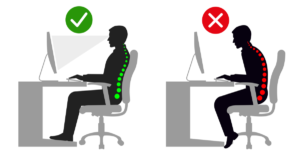
National Safety Month is a great time to remind your employer that ergonomics is a crucial part of keeping your workplace safe. Ergonomics is the study of how people interact with their environment, and it’s an important component of safety in the workplace. For example, if you’re spending most of your day at a desk, you need to make sure that your chair and desk are properly adjusted for your body size, so you don’t end up with back pain or other issues. You should also be sure to have good lighting and enough space to move around throughout the day. Those are just some examples—the point is that ergonomics has a lot to do with how our bodies work in relation to our environments, and we should consider it when thinking about safety. There are several ways you can promote ergonomics in your Workplace:
•Be sure all equipment is properly maintained and regularly cleaned, so there are no safety hazards.
• Ensure that your employees have access to proper training on all equipment they use. This will help them feel more confident when using the machines, which can lead to safer working conditions overall.
• Create an open dialogue with your employees about any concerns they may have about their health or safety at work—this will help you identify any potential problems before they become big issues!
Let’s talk about PPE!
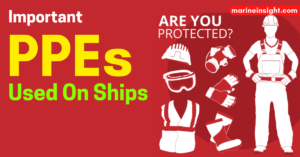
What is PPE? Personal protective equipment is anything you wear or use to protect yourself. Wear appropriate personal protective equipment (PPE) for your job and others from injury or illness. It can be something as simple as a hard hat in the construction industry, or it can be an entire hazmat suit used by firefighters. There are some jobs where you don’t need any PPE at all—but for those that do, it’s important to wear it correctly and consistently. How do I know what kind of PPE I need? If your job requires you to work with dangerous materials, chemicals, or heavy machinery, you should talk to your supervisor about getting appropriate training before beginning work on those tasks. If your job just involves lifting heavy objects, then maybe you don’t need special protection at all! But if you’re unsure about what kind of PPE to get, consult your supervisor or someone at human resources who can advise you on which types of protection will keep everyone safe while still being comfortable enough for long-term use
If you think you’ve been injured while at work, notify your supervisor and seek medical attention immediately. It can be difficult to know when an injury is serious enough to take time off from work, but it’s important, to be honest with yourself and with your employer. Remember that the more information you can provide about your injury, the better equipped your employer will be to help you deal with the situation. If you are unable to work because of a workplace injury, it is important that you notify your employer immediately. Make sure that they have all of the necessary information regarding what happened and how it impacted your ability to perform your job duties. Not only will this help them understand why they need to pay for temporary disability benefits, but it will also help them ensure that other employees are not put at risk by performing tasks outside of their normal scope of responsibilities.
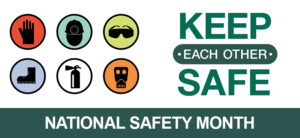
If safety is something that you value and embrace, remember that it doesn’t end in June. You can make continual strides in your life to improve your own personal safety, your family’s safety, and the well-being of everyone around you. Our hope is that we’ve offered some helpful tips here and that they’ve inspired you to continue to keep safety a priority. If your workplace is celebrating National Safety Month, call a safety meeting to set time aside just to discuss these topics and remind workers of their importance. If you have an employee who is struggling with a variety of different workplace hazards, be sure to offer them the resources they need to deal with these issues. And last but not least, spread the word on driving safety by sharing this article with everyone you know—their life may depend on it.

